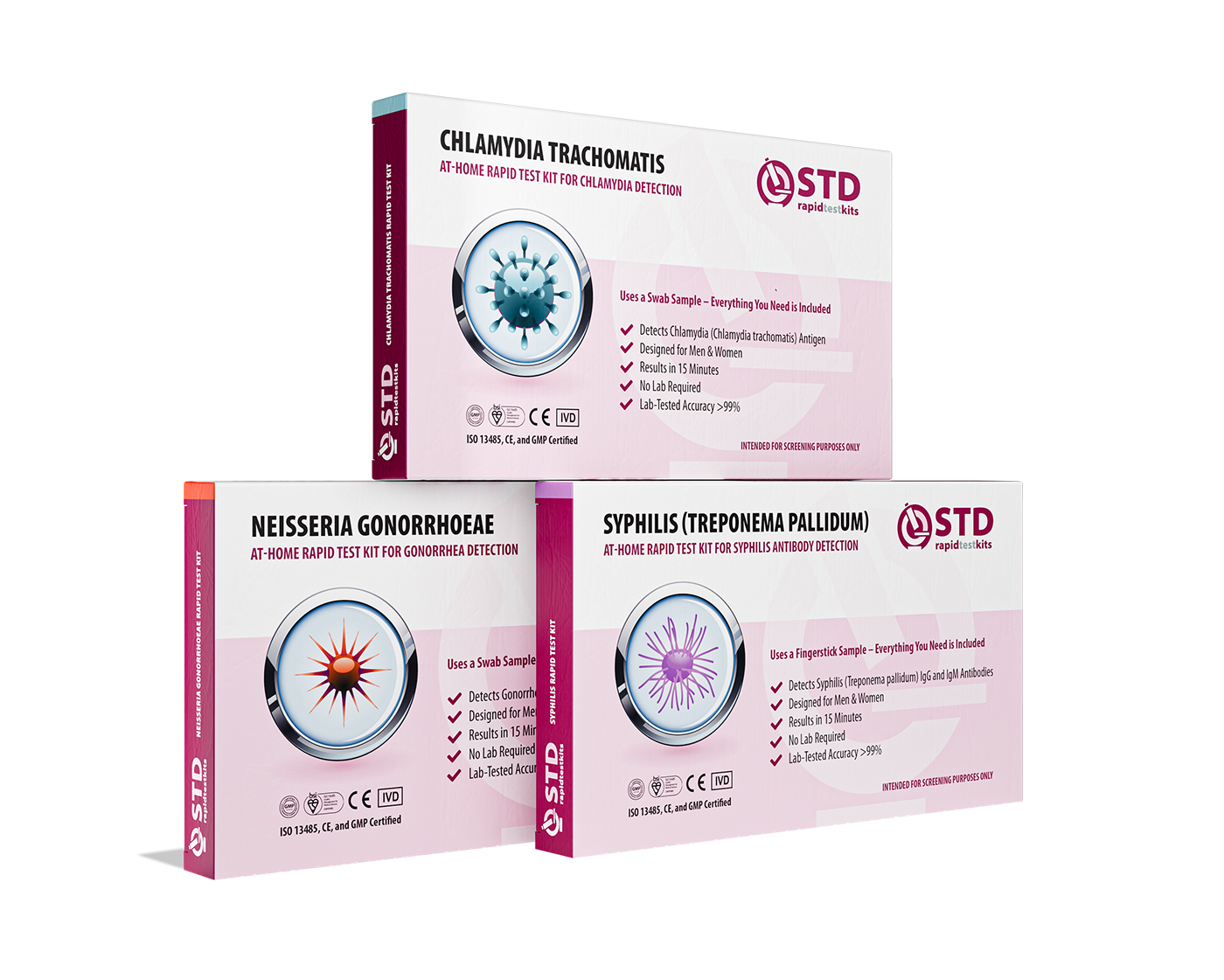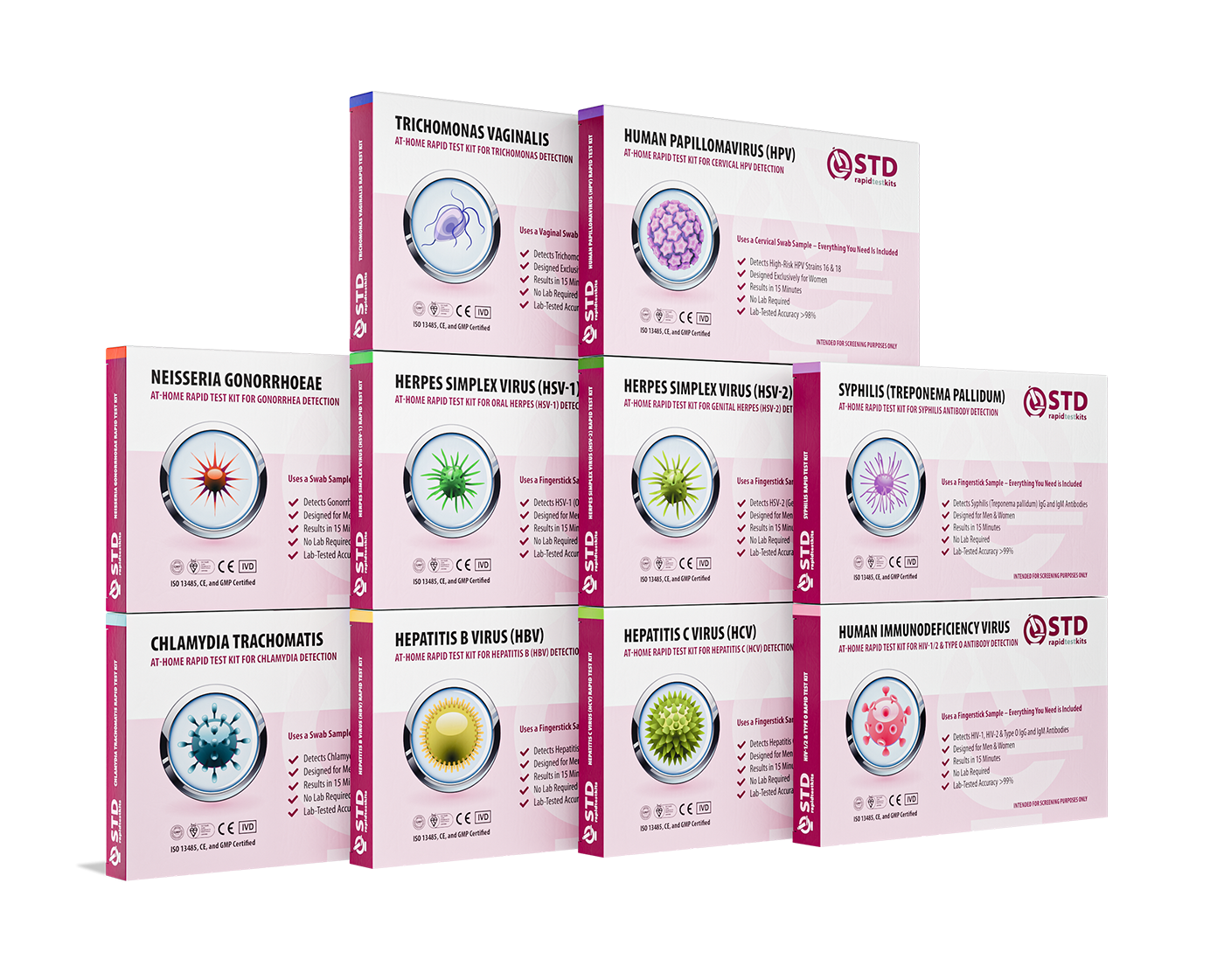Quick Answer: Yes, you can pass an STD to your baby without knowing. Many STDs have no symptoms, and some are not routinely tested during pregnancy unless specifically requested. Congenital transmission can happen during pregnancy or birth.
Jasmine, 29, had one of those births where everything went sideways. She labored for hours. The monitors kept beeping. Her daughter came out blue, not crying. But the real shock came days later, when the pediatrician called and said the baby had tested positive for syphilis.
“I just started crying. I didn’t even know I had it. I thought they tested me for everything. No one told me anything was wrong.”
Stories like Jasmine’s aren’t rare anymore. In fact, they’re becoming terrifyingly common. Across the U.S., thousands of infants are now born with congenital STDs, infections they didn’t earn, symptoms they can’t explain, all passed silently from a parent who didn’t even know they were carrying something.
That’s the gut-punch: many sexually transmitted infections (STIs) are completely silent. No rash. No pain. No warning. You can feel perfectly healthy and still carry something that puts your baby at risk. That risk doesn’t always show up in your body, but it can show up in theirs.
Every year, more and more parents are leaving the hospital with questions instead of answers. In 2022, the U.S. hit a record high of 3,761 cases of congenital syphilis, an increase of over 700% in the last decade. Those are babies born blind, born too soon, born into weeks of NICU monitors and spinal taps.
And syphilis is just the headline. You can also unknowingly pass chlamydia, gonorrhea, herpes, hepatitis B, and HIV, even if you’ve never had a single symptom. It’s not about shame. It’s not about lifestyle. It’s about something much simpler: you didn’t know. And you’re not alone.

People are also reading: What STDs Can You Test for at Home?
This Isn’t Just Razor Burn, And Here’s Why It Matters
If you’ve ever wondered, “Was that weird bump an ingrown hair or something worse?”, you’re not paranoid. You’re paying attention. Most people don’t find out they have an STD because they feel something. They find out by accident, or never do at all.
Take chlamydia, for example. It’s one of the most common STDs in the world. It’s also one of the most invisible. Up to 70% of women and 50% of men with chlamydia have zero symptoms. Not even a tickle, discharge, or ache. And it’s exactly this kind of infection that can travel silently through pregnancy and show up in your newborn instead.
When gonorrhea passes to a baby during delivery, it doesn’t always show up right away. It might look like a harmless eye infection, or a little bit of swelling that no one worries about. But left untreated, it can lead to blindness. The same goes for herpes simplex virus, babies infected at birth can develop brain damage, seizures, or worse.
And if you’re assuming your doctor screened you for all of this during your first OB appointment? Don’t. Testing protocols vary wildly by clinic, by provider, by state. Many doctors only test for HIV, syphilis, and hepatitis B in early pregnancy, and even then, only once, unless you’re flagged as “high risk.”
Translation? You could test negative early on, contract something mid-pregnancy, and pass it along without anyone catching it. Or you could’ve had something simmering for years, never tested, never noticed, and it just happened to show up in your child.
“I thought my last STD test covered me,” said one Reddit user in a pregnancy forum, “but my OB never told me what they actually tested for. I assumed it was everything. It wasn’t.”
There’s nothing irrational about worrying when something feels off. If you’re pregnant or might become pregnant, and you’re asking Google about a weird itch, rash, or pain, trust that instinct. Your body might not always speak clearly. But your gut usually does.
When Silence Is a Symptom Too
Some infections cross the placenta during pregnancy. Others spread during delivery, when a baby moves through the birth canal. But in both cases, one detail matters most: you often don’t know it’s happening. That’s how congenital syphilis works. That’s how herpes slips through. That’s how chlamydia ends up in a newborn’s lungs or eyes.
And it’s not your fault.
Let’s say you had a one-time hookup two years ago. Or you’ve been with the same partner for ages, but they weren’t honest. Or maybe your last STD test was a year ago and you assumed you were covered. Every single one of those is common, human, relatable, and enough to make this kind of transmission possible. Because even now, even in 2025, not all providers screen regularly. Not all clinics inform clearly. And not all patients know what to ask for.
In a landmark 2023 study from the CDC, researchers found that nearly half of pregnant people who passed syphilis to their babies had received prenatal care, but either weren't tested early enough or weren't treated in time. In other words: the system caught them, but too late. Or didn’t catch them at all.
STDs don’t only spread through behavior. They spread through silence. Silence in sex education. Silence in checkups. Silence in relationships where people are afraid to say what they’ve done, or afraid to ask.
“I got chlamydia from my ex during my second trimester,” shared one anonymous submission to a sex-ed support site. “He swore he was clean. I had no idea I needed to test again. No one told me.”
Now imagine carrying that infection for weeks, or months, with no sign at all. That’s how it passes on. That’s how it becomes someone else’s pain, someone who didn’t even get a choice.
Check Your STD Status in Minutes
Test at Home with Remedium3-in-1 STD Test Kit

 For Men & Women
For Men & Women Results in Minutes
Results in Minutes No Lab Needed
No Lab Needed Private & Discreet
Private & DiscreetOrder Now $69.00 $147.00
For all 3 tests
“But I Got Tested”, Why That Still Might Not Be Enough
Testing isn’t one-size-fits-all. It's not even one-list-fits-all. In most OB-GYN practices, early pregnancy testing includes HIV, syphilis, and hepatitis B, but chlamydia and gonorrhea may only be tested if you’re under 25 or labeled “high risk.” That leaves a huge number of infections missed by default.
And then there’s timing. If you’re tested at 8 weeks pregnant but contract something at week 16? That result doesn’t cover it. If your partner wasn’t monogamous and you didn’t know? It doesn’t show up. If you’ve never been tested before but your doctor assumes you have? That infection can sit there unnoticed, untreated, and still transmissible.
False negatives happen too. Some STDs have an incubation window, a delay between exposure and when it’s detectable. You might get tested too early. You might get a clean bill of health at the wrong time. That’s not on you. That’s on how the system treats routine testing as optional instead of essential.
A 2023 study in Nature confirmed what many suspected: clinical assumptions around “risk” lead to major testing gaps. Providers often base who gets tested for what on age, race, marital status, or appearance. That bias lets infections slip through cracks. And when they do, it’s people who are already marginalized, young, poor, queer, Black, immigrant, who are most likely to suffer the fallout.
If you were never told which STDs your prenatal panel included, you’re not alone. If you assumed “getting tested” meant everything was checked? You’re one of millions. It feels like betrayal, because it kind of is. The medical system should be built to protect, not penalize, the people who trust it most.
That’s why congenital STDs feel so devastating. Because often, the parent has no clue anything is wrong, until it’s already happened.
You Deserve to Know, Not to Guess
Let’s make something clear: protecting your baby doesn’t mean never making a mistake. It doesn’t mean avoiding sex, or partners, or pleasure. It means knowing. And that’s something you can reclaim, no matter what came before.
If you’re pregnant, or thinking about it, and haven’t had a full panel STD test recently, now is the time. Not a half-list. Not just “whatever the OB ordered.” A full check. That includes chlamydia, gonorrhea, syphilis, herpes, HIV, hepatitis B and C, and trichomoniasis, all of which can be passed to a baby through pregnancy or birth.
You don’t have to wait for an appointment. You don’t have to explain yourself to a receptionist. You can order a combo STD home test kit online, delivered discreetly, taken privately, with results in minutes. Yes, even while pregnant. These tests are FDA-approved and CLIA-certified. You’re not guessing anymore. You’re checking. And that’s powerful.
For anyone who has tested positive, first of all, you’re not broken. You’re not dirty. You’re not the end of your baby’s story. Most STDs are treatable, and many can be treated safely during pregnancy. Syphilis can be cured with antibiotics. Chlamydia and gonorrhea can be cleared with pills. Even HIV, with the right prenatal care, can be managed to protect your baby completely.
“When I found out, I was six months in,” shared Tyra, a mom of two. “I thought it was too late. But my OB got me on meds right away, and my daughter was born healthy. No infection. Nothing. It was scary, but I did it. We did it.”
What matters is that you know. What matters is that you ask. If your provider hasn’t explained your STD testing panel, ask. If you’re not sure what’s included, ask. If you think you’ve been exposed since your last test, ask. If your partner was dishonest, or you just have a gut feeling, ask. None of these questions make you irresponsible. They make you a parent who gives a damn.
And if your provider brushes you off? If they shame you, or tell you it’s unnecessary, or act like you’re overreacting? Find someone else. Seriously. You deserve a doctor who sees you as a whole person, not a chart. You deserve care that’s based on facts, not assumptions. The research is already on your side.
A peer-reviewed 2024 meta-analysis confirmed what many have long argued: routine, comprehensive STD testing in pregnancy is one of the most cost-effective and lifesaving tools in modern prenatal care. When done consistently, it reduces premature birth, NICU admission, and long-term infant complications. The problem? It’s not done consistently.
So let’s stop pretending this is about recklessness. It’s about access. Information. Support. And yes, testing.

People are also reading: A Look Back at the History of STDs
Sex-Positive Doesn’t Mean “Ignore the Risks”, It Means You Deserve Safety Too
Pregnancy doesn’t erase your sexuality. It doesn’t mean your past has to haunt you. It doesn’t mean you owe anyone an explanation about your choices. What it does mean is that you get to choose what happens next. You get to be informed. You get to say, “I want to know what’s going on in my body.”
Testing isn’t about fear. It’s about clarity. It’s about showing up for your kid before they’re even born. It’s about walking into that delivery room knowing you did everything you could, and that’s something to be proud of, not ashamed of.
If no one else has said this to you: you’re not the only one who missed the signs. You’re not the only one who didn’t know. You’re not the only one Googling symptoms at midnight. You’re not alone in this. And you’re not too late to act.
FAQs
1. Can I really give my baby an STD without even knowing I have one?
Yep, and it sucks, but it happens all the time. Most STDs don’t come with a flashing neon sign. You could feel totally fine, look totally healthy, and still be carrying something like chlamydia or syphilis. It’s not your fault, it’s biology and broken systems.
2. Wait, aren’t pregnant people automatically tested for all this stuff?
You’d think, right? But no. Most providers test for HIV, syphilis, and hepatitis B early in pregnancy. That’s it. Sometimes they’ll check for chlamydia or gonorrhea, but only if you’re under 25 or “high risk.” Spoiler: those labels don’t mean much. You’ve got to ask.
3. How would I even know if I had something?
That’s the kicker, you probably wouldn’t. STDs like chlamydia and gonorrhea are total ghosts in most people. No symptoms. No discomfort. Just vibes and bad luck. That’s why testing is so important, even if nothing feels wrong.
4. What happens if a baby catches an STD during birth?
It depends on the infection. Some babies just need eye drops. Others could end up with serious problems, like pneumonia, blindness, or in rare cases, life-threatening illness. This is why prevention and early treatment matter.
5. Is it too late to test if I’m already halfway through my pregnancy?
Nope. Not even close. It’s actually the perfect time to double check. Many infections are easy to treat and safer to catch now than later. You can also retest after any new partners or exposures, your body’s still your own during pregnancy.
6. What if I tested early and it came back negative?
First of all, go you. That’s a great step. But if that test was months ago? Or you’ve had new risk since? You should probably test again. Infections don’t wait around for OB panels to catch up.
7. Can I use an at-home STD test while I’m pregnant?
Absolutely. Home tests are a game changer, quick, private, and no awkward stirrups. Just make sure you’re choosing a reputable kit (like this one). If something comes back positive, follow up with your provider for confirmation and care.
8. How long do I have to wait after a risky hookup to test?
Depends on the STD. Some show up fast, within a week. Others, like syphilis or HIV, can take longer. When in doubt, test at two weeks and again around three months for full peace of mind.
9. What if I test positive? What happens to the baby?
Deep breath: you still have options. Many STDs can be treated safely during pregnancy. With things like syphilis, quick antibiotics can protect your baby completely. Don’t panic, act early, and your doctor will work with you.
10. Do I have to tell my partner if I test positive?
Technically? That’s up to you. But practically? It’s a good idea. You don’t want to treat an infection and then get it again because they didn’t. It’s not about blame, it’s about breaking the cycle. And if that convo feels terrifying, you’re not alone. Scripts help. I’ve got you if you need one.
Check Your STD Status in Minutes
Test at Home with Remedium10-in-1 STD Test Kit

 For Women
For Women Results in Minutes
Results in Minutes No Lab Needed
No Lab Needed Private & Discreet
Private & DiscreetOrder Now $189.00 $490.00
For all 10 tests
Don't Wait for Answers. Get Tested.
If your gut is telling you something’s off, or if you’re just realizing how little your prenatal screening actually covered, you’re not overreacting. You’re advocating for yourself. You’re protecting your baby. And you’re doing something millions of people wish they’d done sooner: getting the truth.
You don’t have to wait for symptoms. You don’t have to wait for permission. And you don’t have to wait until something goes wrong. Take the step now, on your timeline, on your terms.
This at-home combo test kit checks for the most common STDs discreetly and quickly, because testing is care, not shame.
Sources
2. WIRED: Surge in Congenital Syphilis
3. BMC: Symptomless STI Transmission in Pregnancy










